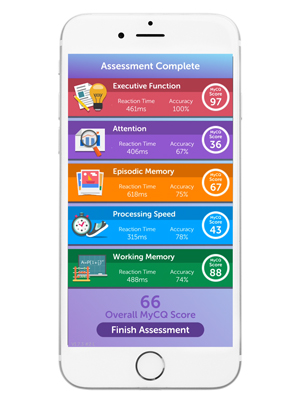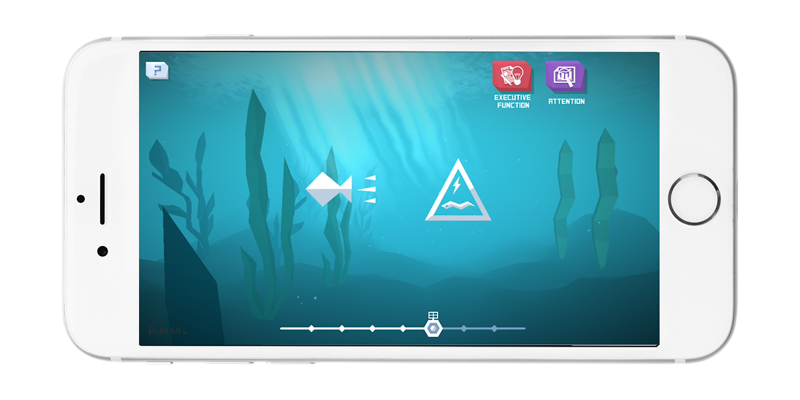Keiron Sparrowhawk is founder and CEO of MyCognition, a company dedicated to understanding and improving cognitive fitness by providing digitally-led coaching programmes that assess and enhance cognitive health. Prior to setting up the NHS approved app, MyCognition, Keiron had a background in pharmaceuticals, before he moved into lecturing and entrepreneurship. He studied neuropsychology and then health economics, before going on to complete an MBA.
“…Since lockdown, we’ve not only seen a massive increase in use of our digital therapeutic, but also an increase in the ratio of women to men – particularly amongst young women. This is reflective of the general problem that mental health problems are increasing, regardless of age, gender, where you live, whether you work or not and your and original state of health…”
How MyCognition all began
As a youngster, I liked medicine, but never felt I would be good enough to become a doctor. While completing my A-Levels and still only 17, my oldest sister, who died from cancer when she was 39, showed me an advert for a Research & Development (R&D) post at the Wellcome Foundation and that is where I started my career.
I fell in love with neuroscience because it’s where we have the biggest needs and challenges and where we have to bring about the greatest change in the way we diagnose, treat and prevent the causes of mental illness. I’ve always wanted to be part of that change.
My career has wandered from R&D to commercial back to R&D but my love for neuroscience has always remained. It’s people that count and understanding the workings of the human mind and how that affects our behaviour and health will continue to fascinate me.
I had a 27-year career in pharmaceutical corporates, culminating as head of international pricing and reimbursement at GSK. I was really lucky to experience so much, to gain so many qualifications (I spent 20 of those years doing “night-school” to get my qualifications in science and business), and to work with so many amazing people from all over the world, from so many different cultures.
But, I was disruptive, always looking to change the way we were doing things rather than going with the flow. That disruption was not always welcome and I eventually left. Since then I have achieved so much more as an entrepreneur than I ever could, had I stayed in corporates.
How MyCognition works
At the heart of what we do, we ask “why?” Why do people suffer from depression, anxiety, dementia and Parkinson’s? Why do we suffer from these auto-immune, highly inflammatory diseases? Why do we suffer from these diseases where cognition seems to play such a big part, but we have so little understanding of its role? It’s by being curious that we look beyond the symptoms to the causes of mental illness. It’s then we can do something about it.
From that curiosity comes a passion to put our thoughts into action. MyCognition not only developed innovative technology; we also put that technology into clinical trials to prove that it worked, into the most rigorous of testing procedures. We were and are seeing continued success as a result of our R&D, but that is only part of the story. Now we have to get our voice heard in a world where hundreds of unproven “health apps” are launched every day.
Women and Coronavirus
The emotional wellbeing of women has undoubtedly been hit harder by Coronavirus than men as they generally take on more of the caring duties. For instance, I am convinced my wife is having an affair with the lady at the Tesco checkout. Okay, maybe not an affair, but she has certainly fallen in love with her and, like most of us, with the front-line women who have kept things going through the COVID-19 crisis.
MyCognition data, sourced by my amazing colleagues Chengcheng Wang and Martina Ratto, shows that more women are using our products; almost three times more women than men according to sites such as NHS GoodThinking, which is dedicated to looking after mental health.
Women are prominent, not only because they need help, but also because they are far-sighted enough to understand they need to prevent their health from worsening, to build their resilience. The MyCognition products help to treat AND prevent the causes of mental illness, so they perfectly fit the needs of women in these cases. Interestingly, we have seen the greatest increase in the use of our digital therapeutic app among women aged between 20 and 35.
Despite this, our society, in general, isn’t helping women to manage their mental health. It is apparent that the economic burden from the COVID-19 crisis is falling most heavily on women. Further research suggests that among women, those with young children are most neglected.
This is significant because the knock-on effect of the impact on mothers will be poor mental health in children. Again, research shows that schools are sending more children for mental health counselling for the first time and we don’t have the resources to cope with the increase.
The power of technology in improving mental health

The best technology will allow patients to self-assess and self-treat while being looked after by a therapist. If we do this together, we can bring about a change in mental illness. Not all technology is being developed like this, but MyCognition is.
Since lockdown, we’ve not only seen a massive increase in the use of our digital therapeutic, but also an increase in the ratio of women to men – particularly amongst young women. This is reflective of the general problem that mental health problems are increasing, regardless of age, gender, where you live, whether you work or not, and your and original state of health.
I believe there is a greater burden on women, but unlike men who put their heads in the sand, many women also take a proactive, future-looking view on this and take precautions to keep themselves in a good mental state.
However, we are concerned that as a society we are not doing enough to help all age groups and genders. And, very importantly – not enough in schools, where 50% of mental illnesses will emerge by 14 years of age; not enough in the workplace where women still have the greatest share of the burden bringing up the children, running the home while having a career; and not enough as we age where women are more likely than men to suffer from neurological conditions such as dementia.
Time for workplace change – the “new normal”?
We have to change. Overwhelmingly mental health was previously viewed as a “box to tick”. Far too many companies put in place schemes which didn’t let their staff objectively assess, treat and prevent the causes of mental illness.
Too few companies have been prepared to grasp the nettle, simply hoping that the “sticking plaster” approach would see them through. This has failed.
The “new normal’ is an opportunity to review mental wellbeing practices in the workplace. We have clearly seen that we need to give employees the means to build and protect their mental resilience by treating and preventing the causes of mental illness, which by the way, will help their resilience to infection, too. This is now possible and there are no longer any excuses for employers not to be bold and adopt new practices.
MyCognition is glad to see an increase in people talking about mental health, but now is the time to put words into action.
The future for MyCognition
We have built a solid foundation in mental health, and our digital therapeutic is unlike anything else available. We took calculated risks with our R&D to align the latest developments in technology with the latest developments in neuroscience. Now, we have to find the partners to work with to take these products to the market, to sing loud and clear about our proven benefits, to change the world one mind at a time.






